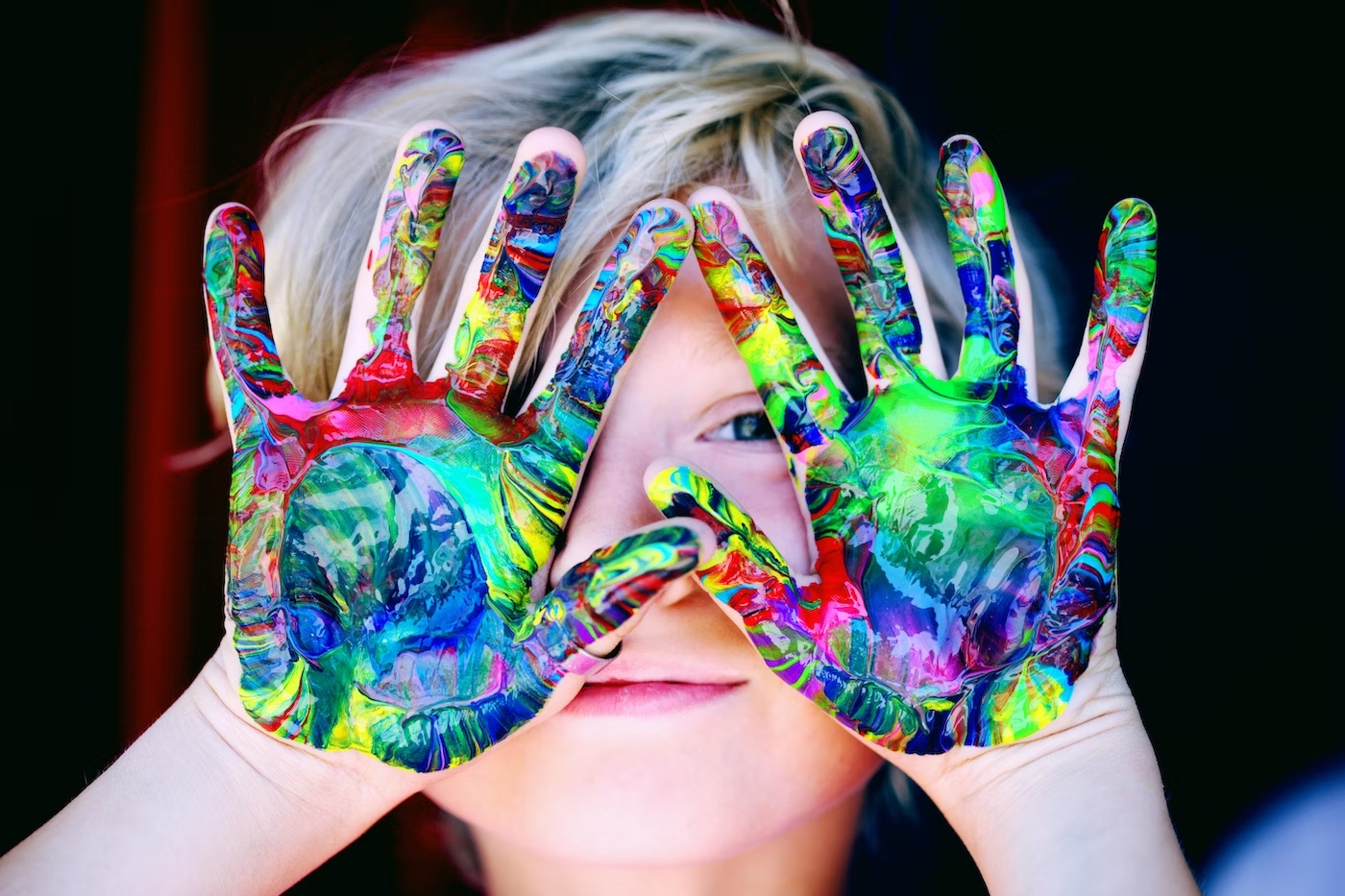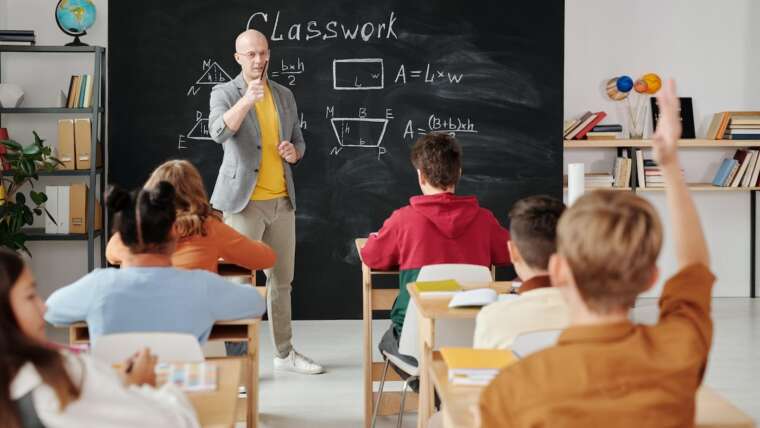How the Mind of a Child Works?
Overview
A child under the age of seven has no ability to control their emotions. What would you say to a parent who is shouting and screaming at their child, who is blind, for not being able to see things properly, or a lame child for not being able to walk properly?
What would you say to a parent who is shouting and screaming at their child?
We all have done such things as parents, not realizing what the child was capable of and what was beyond their capabilities.
A child under the age of seven has no ability to control their emotions, they can’t reflect on their thoughts and emotions and decide what is right and what is wrong and change their behavior. Their minds are pure experience machine that feels emotions but there is no way of analyzing their thoughts and emotions in terms of right or wrong, good or bad, appropriate or inappropriate in a given situation. Once the emotions end, they have no narrative of the incident in their mind, hence soon after being upset about something they totally forget the details of the incident and the accompanying emotions. They are extremely upset when the parent leaves the house, but soon after they are back to their normal self as if nothing had happened.
We all have two parts to our mind – the experiencing self and the observing self. It is the observing self that can control the emotions that arise in the experiencing self. A child under the age of seven has no observing self, and their parent is the observing self for them. They can’t think about their thinking and can’t reflect on their emotions. It is the responsibility of the parent to help the child make sense of their emotions and help them control them every time they experience a strong emotion. It is the responsibility of the parent or an adult to guide the child into understanding and responding to a given emotion or thought properly, and doing it once is not enough as the child will have no memory of what was told to them the last time when they got emotional.
Jean Piaget, a child psychologist
Jean Piaget, a child psychologist, described the following stages of cognitive development of children: –
- Sensorimotor stage: From age 0 to 2 years. Children perceive the world through movements and their senses only.
- Preoperational stage: From age 2 to 7 years. Children can speak but don’t understand concrete logic and can’t mentally manipulate information. They can’t see things from others’ perspectives.
- Concrete operational stage: From age 7 to 11 years. They have limited logical ability and they are very concrete and literal in their thinking. At age seven they become better at thinking about how other people might view a situation. From age seven to eleven they begin to think logically about concrete events. The thinking becomes more logical and organized but still concrete.
- Formal operational stage: From age 11 years onwards, children can now think about thinking and can have abstract ideas without having any connection with objects in the real world. They can understand concepts such as honesty, integrity, etc. They can now learn from experience and correct their behavior without any external help through their own introspection. They can see multiple perspectives on a given thought or situation, hence it opens the door for self-reflection and self-corrective thinking and behavior, until then their parents function as the corrective force in their lives.
In spiritual traditions, age seven is considered the right age to teach meditation to children as they begin to acquire the ability to reflect on their own experiences. They can benefit fully from age 11 onwards.
Sigmund Freud said that the first five years of life are very crucial as that is when personality is formed, and it can’t be changed later on. However, other psychologist has argued against this and said that later socio-cultural factors are also important in shaping one’s personality.
It is important to understand that at about 2 or 3 years of age, the process of separation-individuation starts, which means a child begins to see themselves separate from others around that age. If there is a major disruption in the care provided to the child around that time, they are likely to develop a psychotic illness later as it disrupts their identity formation. One is likely to develop an anxiety disorder if the disruption occurs between the ages of 3 and 5 years. Parents who, due to social reasons, send their children away to be looked after by their grandparents, uncles or aunts are risking the child having psychological problems later in life.
A senior colleague of mine once told me, “when I was a child I did everything that my parents asked me to do when I became an adolescent I did everything that was against the wishes of my parents, and now as an adult, I do lots of things but don’t really know why I am doing them.” It is important to know that being rebellious during adolescence is only normal as they are experimenting with a number of different identities which are separate from the identities of their parent before they settle for the one that suits them most.
We all have done such things as parents, not realizing what the child was capable of and what was beyond their capabilities.
A child under the age of seven has no ability to control their emotions, they can’t reflect on their thoughts and emotions and decide what is right and what is wrong and change their behavior. Their minds are pure experience machine that feels emotions but there is no way of analyzing their thoughts and emotions in terms of right or wrong, good or bad, appropriate or inappropriate in a given situation. Once the emotions end, they have no narrative of the incident in their mind, hence soon after being upset about something they totally forget the details of the incident and the accompanying emotions. They are extremely upset when the parent leaves the house, but soon after they are back to their normal self as if nothing had happened.
We all have two parts to our mind – the experiencing self and the observing self. It is the observing self that can control the emotions that arise in the experiencing self. A child under the age of seven has no observing self, and their parent is the observing self for them. They can’t think about their thinking and can’t reflect on their emotions. It is the responsibility of the parent to help the child make sense of their emotions and help them control them every time they experience a strong emotion. It is the responsibility of the parent or an adult to guide the child into understanding and responding to a given emotion or thought properly, and doing it once is not enough as the child will have no memory of what was told to them the last time when they got emotional.
Jean Piaget, a child psychologist
Jean Piaget, a child psychologist, described the following stages of cognitive development of children: –
- Sensorimotor stage: From age 0 to 2 years. Children perceive the world through movements and their senses only.
- Preoperational stage: From age 2 to 7 years. Children can speak but don’t understand concrete logic and can’t mentally manipulate information. They can’t see things from others’ perspectives.
- Concrete operational stage: From age 7 to 11 years. They have limited logical ability and they are very concrete and literal in their thinking. At age seven they become better at thinking about how other people might view a situation. From age seven to eleven they begin to think logically about concrete events. The thinking becomes more logical and organized but still concrete.
- Formal operational stage: From age 11 years onwards, children can now think about thinking and can have abstract ideas without having any connection with objects in the real world. They can understand concepts such as honesty, integrity, etc. They can now learn from experience and correct their behavior without any external help through their own introspection. They can see multiple perspectives on a given thought or situation, hence it opens the door for self-reflection and self-corrective thinking and behavior, until then their parents function as the corrective force in their lives.
In spiritual traditions, age seven is considered the right age to teach meditation to children as they begin to acquire the ability to reflect on their own experiences. They can benefit fully from age 11 onwards.
Sigmund Freud said that the first five years of life are very crucial as that is when personality is formed, and it can’t be changed later on. However, other psychologist has argued against this and said that later socio-cultural factors are also important in shaping one’s personality.
It is important to understand that at about 2 or 3 years of age, the process of separation-individuation starts, which means a child begins to see themselves separate from others around that age. If there is a major disruption in the care provided to the child around that time, they are likely to develop a psychotic illness later as it disrupts their identity formation. One is likely to develop an anxiety disorder if the disruption occurs between the ages of 3 and 5 years. Parents who, due to social reasons, send their children away to be looked after by their grandparents, uncles or aunts are risking the child having psychological problems later in life.
A senior colleague of mine once told me, “when I was a child I did everything that my parents asked me to do when I became an adolescent I did everything that was against the wishes of my parents, and now as an adult, I do lots of things but don’t really know why I am doing them.” It is important to know that being rebellious during adolescence is only normal as they are experimenting with a number of different identities which are separate from the identities of their parent before they settle for the one that suits them most.





